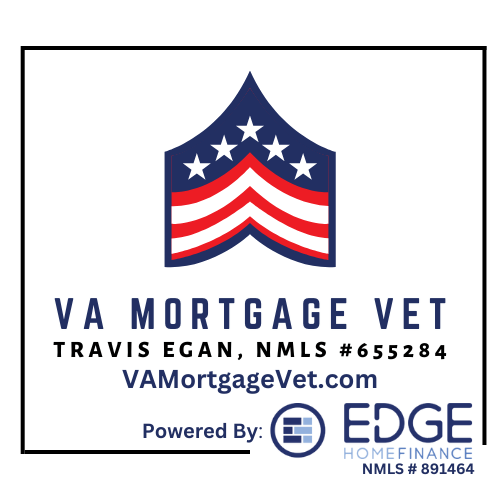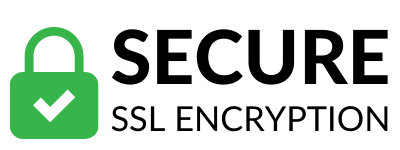
I Hate When Videos Play as Soon as the Page Loads...
CLICK the Video Below for a Welcome Message!

Understanding VA Cash-Out Refinance for Mortgage: Rates and Guidelines
VA Loan Cash-Out Refinance: Rates, Guidelines, and Everything You Need to be eligible for a VA loan Know
Owning a home means more than just living there. It's about dreams, sacrifices, and financial stability. I felt a rush of joy when I got my house keys. It was a big step forward.
Every mortgage payment was a step toward my family's future. Then, I learned about using my home's equity. It felt like a lifeline for renovations, education, or unexpected costs.
If you want to use your home's value wisely, consider a VA cash-out refinance. This option can help with renovations, education, or unexpected bills. Let's explore how this refinance works, from rates to benefits, to see if it's right for you.
Key Takeaways
The VA cash-out refinance allows access to home equity for various purposes.
Borrowers must have over 10% equity to qualify for this type of refinance loan.
The closing process typically takes 30 to 45 days.
The VA funding fee is an important cost consideration in the refinance process.
Eligibility requires obtaining a Certificate of Eligibility (COE).
VA loans eliminate the need for Private Mortgage Insurance (PMI).
Refinancing under the VA program can lead to lower monthly payments and improved interest rates.
What is a VA Loan Cash-Out Refinance?

A VA Loan Cash-Out Refinance lets me replace my old mortgage with a new VA home loan for more money. This way, I can get cash for different needs and switch to a VA loan. I can use up to 100% of my home’s value, but my lender has some rules.
This refinance helps with debt, home fixes, or getting cash. It's great for managing money. The VA cash-out refinance is for veterans, active-duty people, and some surviving spouses. It offers lower interest rates than other refinances.
To refinance a VA loan, I need certain documents. I must show a net tangible benefit to prove my finances get better after the refinance.
Knowing about VA Loan Cash-Out Refinances can really help my money plans. It lets me use my home's equity well.
Benefits of VA Loan Cash-Out Refinance Mortgage
VA cash-out refinance offers many benefits for Veterans and military members. It lets you use your home's equity for different needs. You can improve your home or pay off debts with it.
This method is great for funding home repairs or upgrades. It helps you avoid using your savings for these costs. You can also pay off high-interest debts with a VA cash-out refinance, potentially improving your home equity loan situation. This can save you money over time.
For those who know about VA streamline refinance, the cash-out option is similar but different. It lets you use up to 100% of your home's value for expenses. But, make sure you can afford the extra mortgage payments.
Using a VA cash-out refinance wisely can make your finances more stable. You can remodel your home or pay off debts. This shows how flexible this option is. It helps you improve your finances and make your home more comfortable.
Current VA Cash-Out Refinance Rates
It's important to know about VA cash-out refinance rates if you want to use your home equity. These rates change often because of the market. As of August 1, 2024, the average 30-year VA refinance APR is 7.117%. For cash-out refinances, the 30-year fixed rate is about 7.00% with a 720 credit score, a 45-day lock, 1.128% discount points, and a 100% loan-to-value.
If you need a bigger loan (loan sizes larger than $776,551), the Jumbo refinance rate can be as low as 6.250% with a 6.378% Annual Percentage Rate, potentially lowering your total loan costs.
VA loans are known for being competitive. VA cash-out refinance rates VA mortgage rates are usually lower than regular Conventional & FHA mortgage rates. This can really help when you're looking at different financial options. VA rates are about 50 basis points lower than conventional rates.
Rates can change based on your credit score and loan type. But, there are still good options for homeowners. For an interest rate reduction refinance loan (IRRRL), the average rate for a 30-year Streamline is around 5.990% with an Annual Percentage Rate of 6.117%.
Every lender has different rates and fees, so it's smart to shop around. Since VA cash-out refinances are only for primary homes, knowing the current mortgage rates is key to making good choices.
Eligibility Requirements for VA Loan Cash-Out Refinance

Understanding the rules for a VA Cash-Out Refinance is key for those wanting to use their home's equity. You must have served in the military to get a VA loan. The time you serve can range from 90 continuous days to 24 continuous months. This depends on your service period.
National Guard and Reserve members have their own time rules. People who were discharged under certain conditions can still get a Certificate of Eligibility (COE). This COE is important for getting a VA loan.
Surviving spouses of veterans, including those missing in action or prisoners of war, can also get a COE. Even U.S. citizens who served in allied forces during World War II might qualify.
If you want to use your entitlement again, you can if you sold your home or if someone else took over your loan. You can ask for a Certificate of Eligibility (VA Form 26-1880) for this.
Active-duty service members and veterans must meet specific service time conditions to be eligible for a VA loan.
Minimum credit score requirements can vary; some lenders set a bar at 580.
When considering refinancing, remember that lower interest rates are often available through VA programs.
Cash-back from the refinance can be applied to debts, home improvements, or other investments.
It's important to talk to a VA regional loan center for questions about VA loan eligibility or help with refinancing.
VA Cash-Out Refinance Guidelines
It's key for veterans to know the VA cash-out refinance rules. This program lets me use my home's value to get cash. It's important to understand the rules that lenders have.
Credit Score Requirements
VA lenders often offer VA mortgage loan options and usually want a minimum credit score of 580. But this can change. They check my credit to see if I handle money well and can pay debts.
Having a higher credit score can get me better loan terms and lower interest rates. So, I should check my credit before applying.
Debt-to-Income Ratio Limits
The debt-to-income (DTI) limits are also key in VA cash-out refinance rules. Lenders want my DTI ratio to be under 41%. This shows if I can pay back the loan and handle other debts.
It's important to meet these DTI limits for a good loan application. If I go over, I might not get the loan I want.
VA Cash-Out Refinance Process
Starting the VA cash-out refinancing process is key for veterans wanting to use their home equity. It's like applying for a regular mortgage but needs more documents and steps.
Choosing a Lender
Finding the right lender is very important. Look at different VA mortgage loan offers from VA lenders for great rates and terms. Make sure to check reviews and compare prices to pick a lender skilled in VA loans for an easy process. I would encourage you to consider a Certified VA Mortgage Advisor. You can find these exceptional VA mortgage pros at https://findavma.com
Obtaining Your Certificate of Eligibility
Getting your Certificate of Eligibility (COE) is next. This proves you're eligible for VA benefits. You can get it from the VA's online site or your lender can help you.
Home Appraisal Process
A VA mortgage home appraisal Refinancing your existing loan to a VA mortgage is a key part of refinancing. It checks your home's value to see how much equity you can use. Make sure your home looks its best for the appraisal. A good appraisal can help you get better mortgage terms.
Loan Amount and LTV Requirements
Understanding the loan amount and loan-to-value (LTV) ratio is key when looking at a VA cash-out loan. This type of refinance lets you borrow up to 100% of your property’s value. This means you can get a lot of cash for things like fixing up your home or paying off debt.
But, lenders often have their own rules. For example, even though the VA cash-out loan program allows up to 100% LTV, most lenders cap it at 90%. This means your maximum loan amount could be lower, after adding in the VA funding fee. So, knowing these details is important.
Let's say my home is worth $400,000 and I owe $200,000 on it. I could get up to $160,000 in cash, after paying closing costs and fees. If my loan is under $484,350, I need a FICO score of 600 to get the full amount. If my loan is bigger, I might need a score of 580.
The VA funding fee also affects how much cash I can get. This fee depends on if it's my first or later loan. Knowing about loan limits and LTV ratios helps me use my VA cash-out refinance well. It lets me use my home equity wisely, following what lenders require.
Costs Associated with VA Loan Cash-Out Refinance

When thinking about a VA loan cash-out refinance, it's key to know the costs. This helps me plan my finances better. Knowing these costs makes the refinancing process easier.
Closing Costs
Closing costs are a big part of the deal, usually 3% to 5% of the loan's total. These include fees like:
Loan origination fees
Title insurance
Appraisal fees
Attorney fees
Document preparation fees
Sometimes, the seller might pay some closing costs. This depends on what you agree on. Knowing about closing costs helps me plan my budget. It also keeps me from getting surprised at closing time.
VA Funding Fee Explained
The VA funding fee is another cost. It's a one-time payment to help cover the VA loan program's costs. These fees do not apply to service members or Veterans who have a service-connected disability or who have received a Purple Heart. For a cash-out refinance, the fee is usually:
2.15% for first-time users
3.3% for those who have used their VA loan before
This VA funding fee can be paid upfront or added to the loan. This gives me some flexibility in managing my money. It's important to think about including this fee in the loan. If I do, it might make my total debt more than my home's value.
Pros and Cons of VA Loan Cash-Out Refinance
Looking at VA cash-out refinance, we see both good and bad sides. It's great for veterans and service members wanting more financial freedom.
Advantages of Tapping into Home Equity
One big plus is getting up to 100% of your home's value. You can use this cash for things like:
Debt consolidation
Home improvement projects
Emergency expenses
VA loans often have lower interest rates than regular loans. This means you could save a lot over time with a VA mortgage. Plus, you don't pay private mortgage insurance, so more money goes to your home.
Potential Disadvantages to Consider
But, there are things to think about too. You might need to pay upfront costs. The VA funding fee can be part of your loan, but it makes refinancing more expensive. Also, you need enough home equity to qualify, which not everyone has.
It's also key to look at your debt-to-income ratio and credit score. These affect if you can get the loan. Knowing the pros and cons helps decide if a VA cash-out refinance fits your financial goals.
Conclusion
The VA Loan Cash-Out Refinance program helps Veterans and service members use their home equity. It's key to understand how it works to make smart choices. This way, I can use my home's value to lower my monthly bills.
It's important to look at all the details, like rates and costs, to get the most out of it. This helps me make choices that fit my financial plans. By doing this, I can be sure my decisions are right for the future.
Using a VA cash-out refinance can lead to new chances, like improving my home or paying off debt. Knowing about this program helps me make good financial moves. This way, I can secure a strong financial future.
Frequently Asked Questions (FAQs)
Q: How does a VA cash-out refinance work?
A: A VA cash-out refinance allows eligible veterans and service members to replace their existing mortgage with a new VA loan and convert home equity into cash. This process can help pay off other debts or finance home improvements.
Q: What are the requirements to qualify for a VA cash-out refinance loan?
A: To qualify for a VA cash-out refinance loan, you need to have a valid Certificate of Eligibility (COE) from the Department of Veterans Affairs, sufficient credit and income, and the required equity in your home. Additionally, you must use the home as your primary residence.
Q: Can I get a VA cash-out refinance if I already have a VA loan?
A: Yes, you can get a VA cash-out refinance even if you already have a VA loan. This option allows you to refinance your existing VA loan into a new VA cash-out loan, potentially offering better terms and providing cash based on your home equity.
Q: Are VA cash-out refinance rates competitive with other refinance options?
A: VA cash-out refinance rates are typically competitive with other refinance options, such as conventional cash-out refinance loans. VA loans often include favorable terms like lower interest rates and potentially lower closing costs, making them a cost-effective option for eligible veterans and service members. You may also consider a VA IRRRL for streamlined refinancing.
Q: What are the main pros and cons of a VA cash-out refinance?
A: The main pros of a VA cash-out refinance include the ability to access up to 100% of the value of your home as a loan amount, potentially lower interest rates compared to conventional loans, and no requirement for private mortgage insurance (PMI). The main cons include the need to pay a VA funding fee and possible closing costs.
Q: Can I refinance a non-VA loan into a VA cash-out refinance?
A: Yes, you can refinance a non-VA loan into a VA cash-out refinance loan. This allows you to take advantage of the benefits of a VA loan, such as favorable interest rates and loan terms, and access the equity in your home.
Q: How do I apply for a VA cash-out refinance loan?
A: To apply for a VA cash-out refinance loan, you need to contact a VA-approved mortgage lender, who will help you complete the necessary paperwork. You'll need to provide financial documentation, meet credit and income requirements, and obtain a Certificate of Eligibility (COE) from the Department of Veterans Affairs.
Q: What is the difference between a VA cash-out refinance and a VA streamline refinance?
A: A VA cash-out refinance allows you to convert home equity into cash and refinance an existing mortgage, whereas a VA streamline refinance (also known as an Interest Rate Reduction Refinance Loan or IRRRL) is intended to reduce the interest rate and monthly payment on an existing VA loan without taking out additional cash.
Q: What kind of closing costs are associated with a VA cash-out refinance?
A: The closing costs for a VA cash-out refinance can include appraisal fees, credit report fees, title insurance, and origination fees. The Department of Veterans Affairs may also require you to pay a VA funding fee, which is a percentage of the loan amount, to help defray the cost of the VA loan program.
For further advice on how to make sure your VA home loan process goes as fast and smoothly as possible, please read our article titled: 2024 VA Loan Funding Fee Exemption Guide: What You Need To Know


Travis Egan
NMLS # 655284
Edge Home Finance
NMLS # 891464
1267 Eagles View Dr, Clarksville TN 37040
Travis Egan, VA Mortgage Vet
NMLS # 655284
1267 Eagles View Dr
Clarksville, TN 37040
(931) 208-6280
WE DON'T SLEEP UNTIL
THE MISSION IS COMPLETE

Edge Home Finance
NMLS# 891464
5868 Baker Road
Minnetonka, MN 55345
(763) 219-8484
Edge Home Finance is an Equal Housing Lender. We fully comply with the Equal Credit Opportunity Act (ECOA) and all other Federal regulations. All applicants applying for credit from Edge Home Finance will never be discouraged on the basis of race, color, religion, national origin, sex, military status, marital status, age, or because you get public assistance. All information we request is voluntary, and will be kept confidential. For more information on the ECOA, please visit:
http://www.ftc.gov/bcp/conline/pubs/credit/ecoa.shtm

© Copyright 2024 | Edge Home Finance | All rights reserved.
© Copyright 2024 | Edge Home Finance | All rights reserved.
